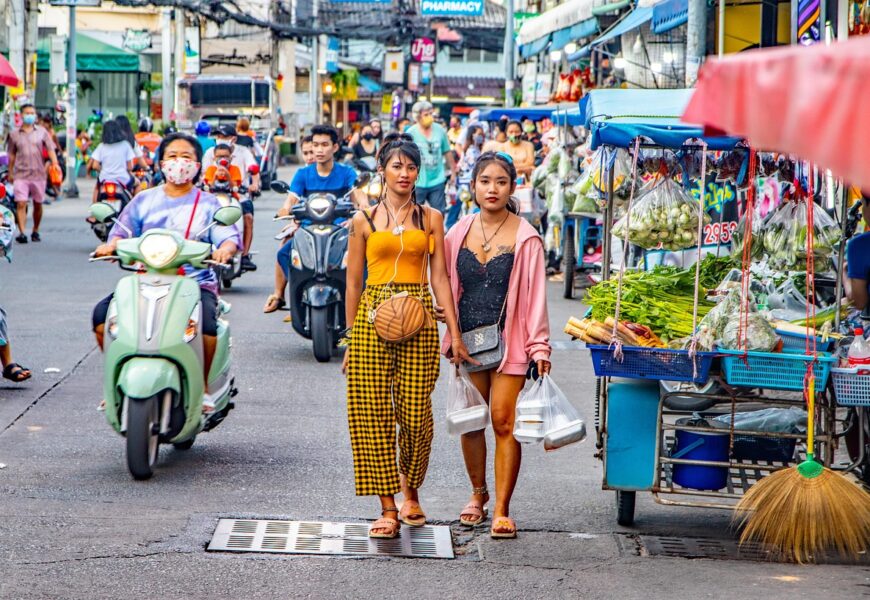Thailand, a vibrant Southeast Asian nation, is renowned for its rich cultural heritage and the remarkable women who have shaped its social landscape. Thai women represent a complex and dynamic demographic, blending traditional values with contemporary aspirations. Throughout history, they have played crucial roles in family, society, and economic development, challenging stereotypes and creating unique pathways of empowerment. Understanding the multifaceted nature of Thai women requires exploring their historical context, cultural influences, educational achievements, professional contributions, and evolving social dynamics.
Historical and Cultural Background
Thai women have historically occupied significant positions within their communities, challenging Western misconceptions about their societal roles. Traditional Thai culture emphasizes respect, familial harmony, and collective responsibility, with women often serving as critical economic and emotional pillars. Buddhist philosophical principles have profoundly influenced gender interactions, promoting values of compassion, mutual understanding, and balanced social relationships. Despite patriarchal structures, Thai women have consistently demonstrated remarkable resilience and strategic negotiation of social expectations.
Historically, women in Thailand were not merely passive participants but active contributors to economic and social development. They managed household finances, participated in agricultural labor, and maintained intricate social networks that sustained community welfare. Royal historical records highlight numerous instances of women holding influential positions in administration, trade, and cultural preservation, challenging simplistic narratives about gender limitations.
Education and Professional Advancement
Contemporary Thai women have achieved remarkable educational milestones, consistently outperforming male counterparts in academic achievements. Recent statistics reveal that women constitute approximately 60% of university graduates across various disciplines, including medicine, engineering, and business management. This educational transformation has catalyzed significant professional opportunities, enabling women to pursue diverse career paths previously restricted by traditional gender expectations.
Professional sectors such as technology, healthcare, finance, and entrepreneurship now witness substantial female representation. Young Thai women are increasingly challenging conventional career trajectories, establishing innovative startups, leading multinational corporations, and creating transformative social enterprises. Their success demonstrates a profound shift from traditional gender roles towards merit-based professional recognition.
Social Dynamics and Gender Equality
While progress has been substantial, Thai women continue navigating complex social landscapes marked by traditional expectations and modern aspirations. Legal frameworks have evolved to support gender equality, with constitutional provisions prohibiting gender-based discrimination and promoting equal opportunities. However, cultural nuances and deeply ingrained social practices sometimes create subtle barriers to complete gender parity.
Contemporary Thai society increasingly embraces progressive gender perspectives, with younger generations challenging traditional hierarchical structures. Urban centers like Bangkok exemplify more egalitarian social dynamics, where women negotiate professional and personal identities with greater autonomy. Feminist movements and grassroots organizations play crucial roles in advocating for comprehensive social transformation and challenging systemic inequalities.
Cultural Identity and Global Perspectives
Thai women represent a sophisticated intersection of cultural tradition and global modernity. Their unique identity combines respect for ancestral values with ambitious contemporary aspirations. Traditional practices like intricate silk weaving, culinary expertise, and spiritual devotion coexist with global professional ambitions, creating a nuanced cultural narrative that defies simplistic categorization.
International perceptions of Thai women have often been problematically reductive, overlooking their complexity and agency. Scholarly research and personal narratives increasingly challenge these stereotypes, highlighting individual experiences that demonstrate remarkable diversity, intellectual depth, and personal resilience. Global interconnectedness has enabled Thai women to articulate their multidimensional identities more effectively.
Future Trajectories and Empowerment
The future for Thai women appears increasingly promising, characterized by expanding opportunities and growing societal recognition. Educational investments, technological access, and evolving social attitudes are creating unprecedented pathways for personal and professional development. Emerging generations are likely to experience even greater freedom in pursuing diverse life choices, challenging existing normative frameworks.
Strategic investments in women’s education, professional development, and leadership training will be crucial in realizing comprehensive social transformation. Government policies, private sector initiatives, and civil society organizations must collaborate to dismantle remaining systemic barriers and create inclusive environments that celebrate individual potential beyond gender constraints.
Thai women’s journey represents a powerful narrative of resilience, adaptation, and continuous evolution. Their experiences illuminate the intricate processes of cultural transformation, demonstrating how individual agency can reshape societal structures. By honoring traditional values while embracing progressive perspectives, Thai women are crafting dynamic, multifaceted identities that inspire global conversations about gender, culture, and human potential.









